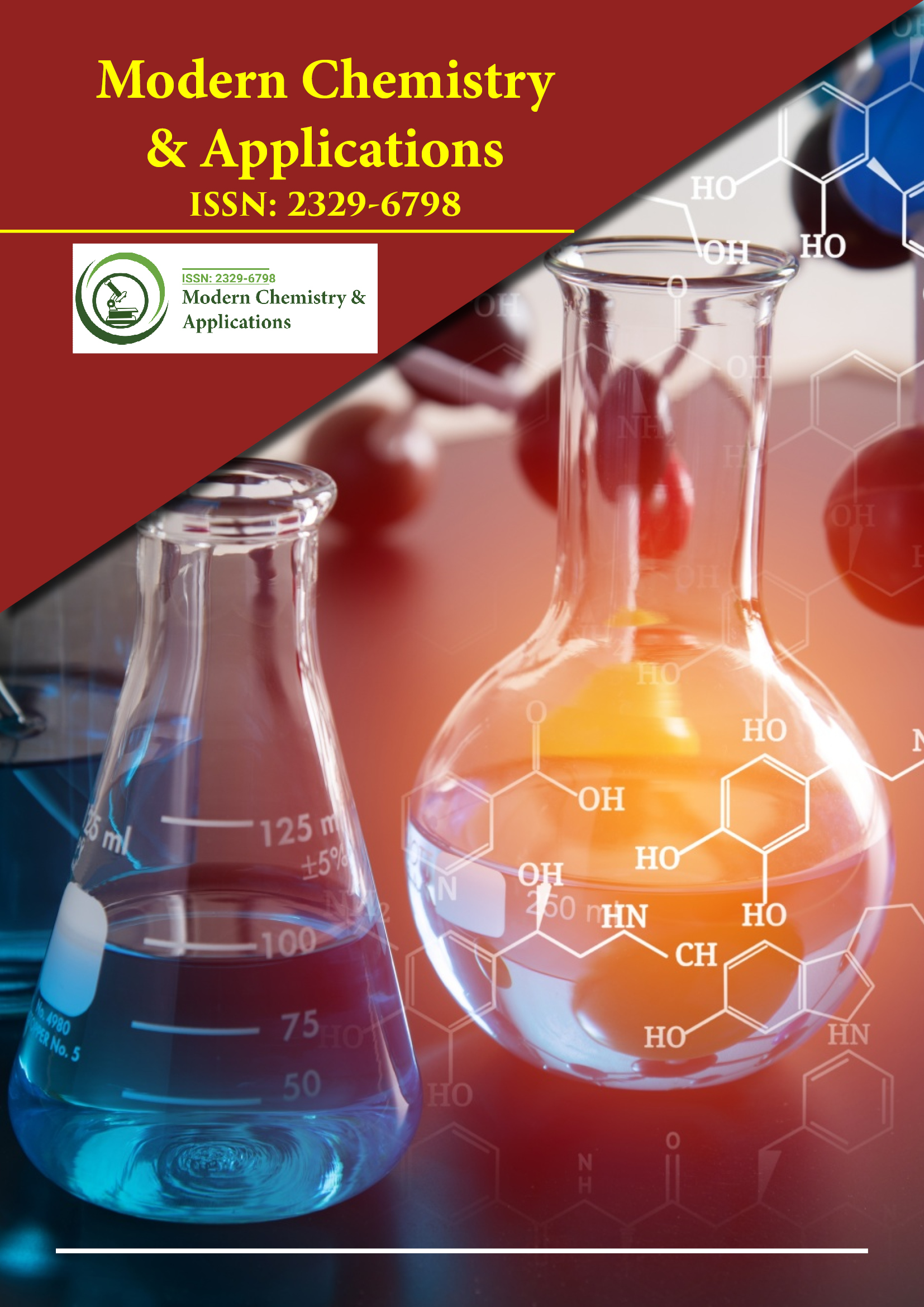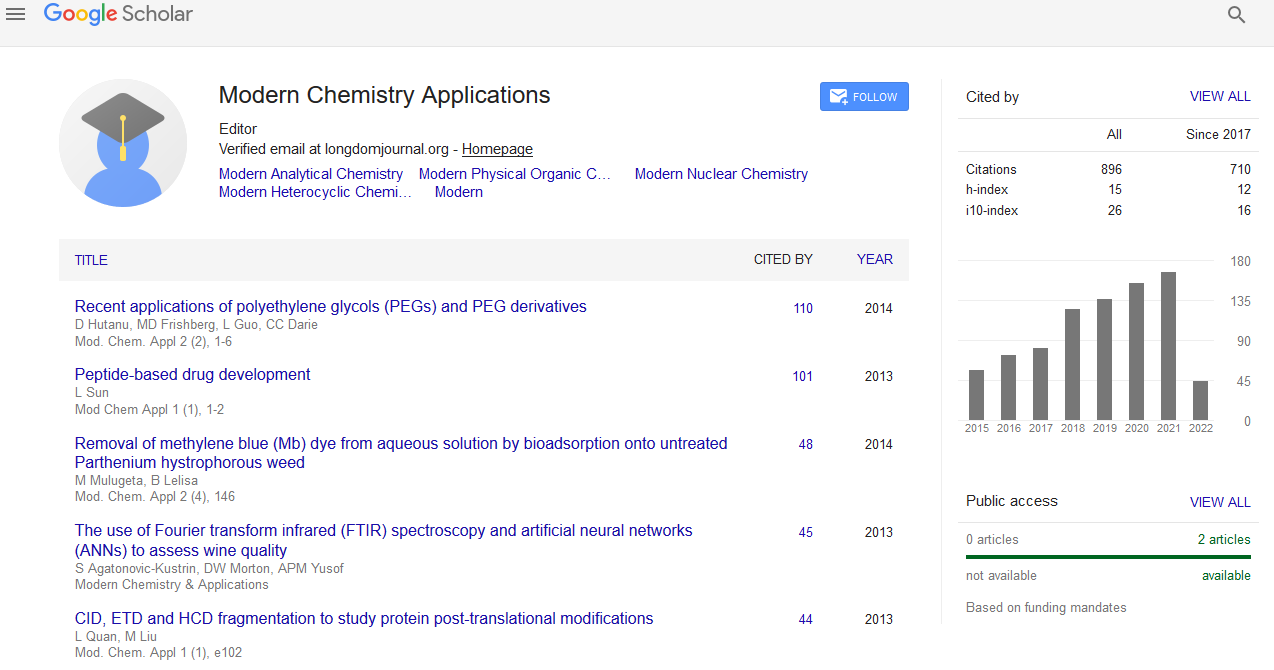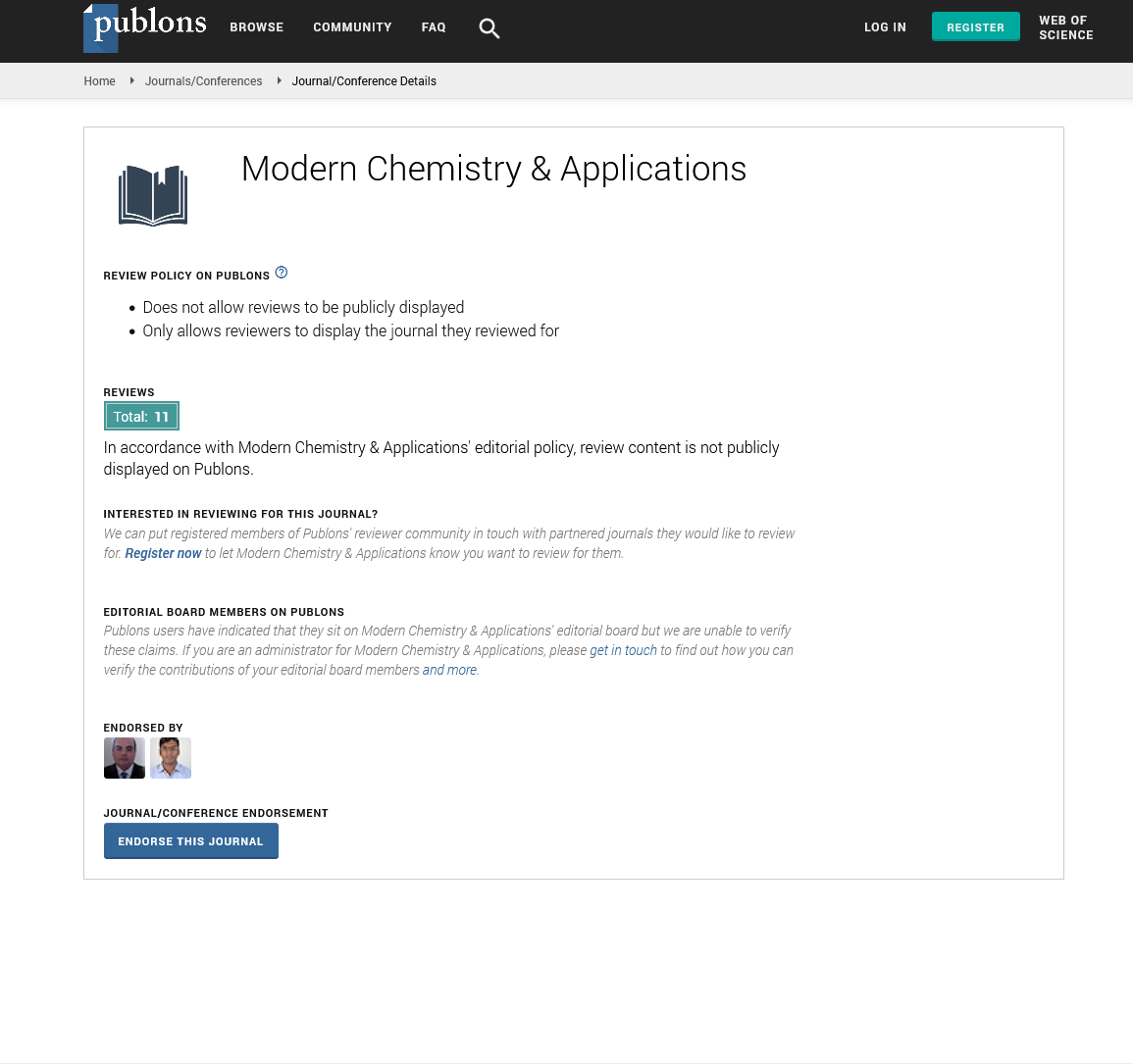Indexed In
- Open J Gate
- JournalTOCs
- RefSeek
- Hamdard University
- EBSCO A-Z
- OCLC- WorldCat
- Scholarsteer
- Publons
- Geneva Foundation for Medical Education and Research
- Google Scholar
Useful Links
Share This Page
Journal Flyer

Open Access Journals
- Agri and Aquaculture
- Biochemistry
- Bioinformatics & Systems Biology
- Business & Management
- Chemistry
- Clinical Sciences
- Engineering
- Food & Nutrition
- General Science
- Genetics & Molecular Biology
- Immunology & Microbiology
- Medical Sciences
- Neuroscience & Psychology
- Nursing & Health Care
- Pharmaceutical Sciences
One pot hierarchically porous carbon fixed bed catalysts
Joint Event on 19th International Conference on Medicinal Chemistry & Multi Targeted Drug Delivery & International Conference on Catalysis and Pyrolysis
November 05-06, 2018 | San Francisco, USA
Martin G Bakker
University of Alabama, USA
Keynote: Mod Chem Appl
Abstract:
Most commodity chemicals are produced in continuous processes that use fixed bed catalysts. Carbon is a widely used catalyst support that is readily available in bulk, has the high surface area and allows efficient reclamation of precious metals. Historically carbon supports have been prepared by pyrolysis and activation of natural materials. Recent advances in the synthesis of hierarchically porous carbons with controlled porosity at nanometer and micrometer length scales have opened a pathway to the rational design of porous carbon supports, with expected improvements in mass transport and process intensification. Soft templating methods applied to solutions of polymer precursors give control at the nanoscale and the kinetics of polymerization and phase separation drive spinodal decomposition that produces porosity on the micrometer scale. Addition of metal precursors with the polymer precursors allows the synthesis of a complete metal supported on carbon catalyst in one pot. The presence of added metal can also impact the microporosity and structure of the carbon through lowtemperature graphitization. The nature and extent of graphitization can in turn potentially impact the catalytic activity, stability and heat transfer properties. In this seminar, I will discuss the synthesis and characterization of hierarchically porous carbons for fixed bed reactors, the various factors that impact the addition of metal precursors for one pot syntheses and recent results on low-temperature graphitization by metal nanoparticles.
Biography :
Martin G Bakker is an Associate Professor of Chemistry at The University of Alabama, with expertise in Electron Paramagnetic Resonance Spectroscopy, surfactant aggregation on surfaces and in solution, block copolymer thin films, self-assembly of porous materials and catalysis. After participating in NSF’s I-Corps Innovation program he went on to co-found ThruPore Technologies which has won Phase I, Ib and Phase II SBIR funding from NSF. The focus of his current research is the development of hierarchically porous materials for catalysis, energy storage and separations.
E-mail: bakker@ua.edu


